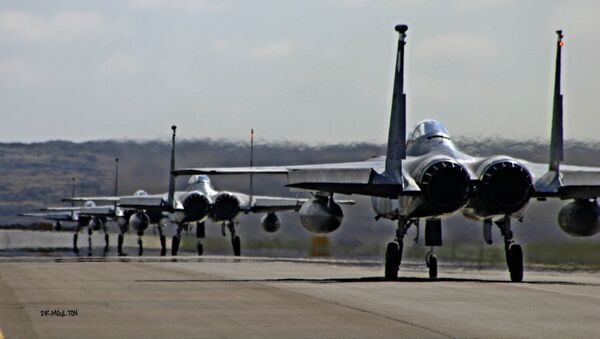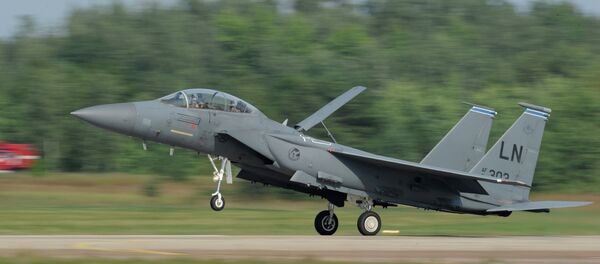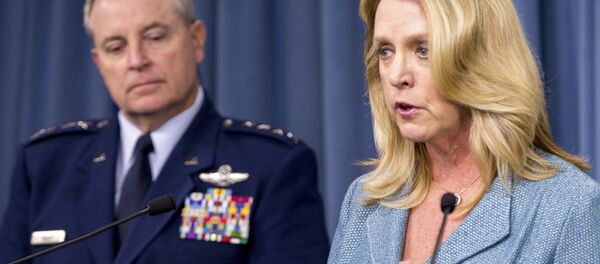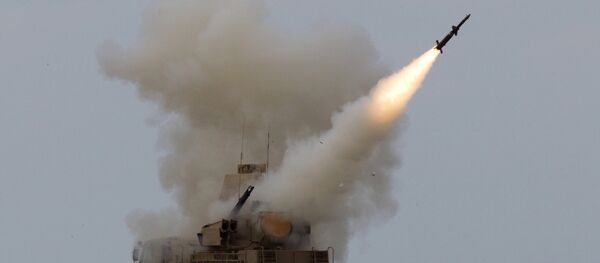The US-led bombing campaign in Syria has been conducting airstrikes against IS targets for over one year, now. These strikes have been carried out by B-1 bombers, A-10 and AC-130 attack planes, and while they haven’t been terribly successful, these bombers have never faced any real danger in the field.
Yet, the Pentagon has suddenly decided that these planes need to be escorted by a fleet of six F-15Cs.
"At the request of the government of Turkey, the US Air Force F-15Cs that arrived last week will conduct combat air patrols to assist in defense of the Turkish airspace," Pentagon spokeswoman Laura Seal said in a statement.
But according to a defense official speaking to USA Today on condition of anonymity, the F-16Cs are largely present to defend against hypothetical attacks from Russian and Syrian fighters.
While both the Russian and Syrian military campaigns are focused on combating IS, the Pentagon has cited month-old claims of Russian jets violating Turkish airspace as justification.
"Turkey faces increased instability along its border with Syria and Iraq and irresponsible behavior from actions in the region," Seal said. "This includes the incursions Russia made into Turkey’s – and thereby NATO’s – airspace in October."
That incident, however, was immediately addressed by both Russian and Turkish authorities.
David Deptula, a retired Air Force pilot who now heads the Mitchell Institute for Aerospace Studies, stressed that the presence of F-15Cs should not be seen as a provocation.
"Prudent planners cover all potential contingencies," he told USA Today. "That said, conflict with Russia is not something the US or Russia wants to see occur."
Yet, "provocation" was the precise label given to Russia’s similar decision to move missile systems into Syria. The Kremlin stressed that this was a precautionary measure, considering any worst-case-scenario.
“We have taken into account all possible threats. We have sent not only fighters, attack aircraft, bombers, and helicopters, but also missile defense systems because any sort of force majeure situation may occur,” Russian Aerospace Forces Commander Viktor Bondarev said last week.
"For example, the stealing of a warplane in a neighboring country with Syria or having to return fire. We need to be prepared for that."
The deployment of new fighter jets came as the Obama administration also announced a plan to station up to 50 US Special Forces "advisers" in Syria. Reversing the president’s pledge of keeping ground troops out of foreign wars in the Middle East, many have already voiced skepticism that those forces would stay out of combat operations.





